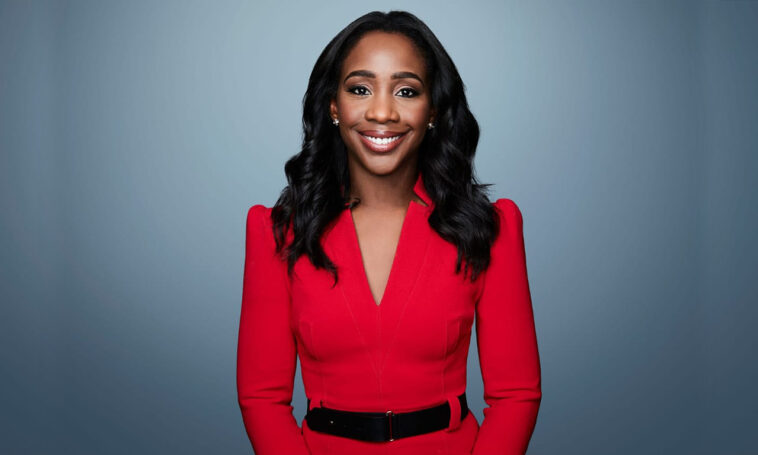CNN’s NewsNight host, Abby Phillip, recently took a moment to address a deeply controversial comment made by conservative commentator Ryan Girdusky toward fellow panelist and journalist Mehdi Hasan, as reported by Adweek. During a heated segment on the show, Girdusky directed a remark at Hasan, who is Muslim, saying, “I hope your beeper doesn’t go off.” His words appeared to reference the tragic incidents in September 2024, where pagers and walkie-talkies used by Hezbollah members in Lebanon and Syria exploded, leading to the death of 39 individuals. The comment stirred immediate backlash among the panelists, and Phillip later revealed that she had removed Girdusky from the studio during a commercial break—a first in her career.
“I’ve never had to kick people off the show before,” she shared, adding, “I didn’t expect it would happen last night. But it was a racist comment, and he said it to someone sitting right in front of him. It just was not appropriate.”
The exchange, which Phillip likened to “trying to stop a bullfight in progress,” occurred during a discussion on the recent rally held by former President Donald Trump in New York City on October 27. This event, held at Madison Square Garden, drew widespread criticism, with some likening the rally’s rhetoric and symbols to those of Nazi Germany. Hasan, in the heat of the conversation, told Girdusky that if he wanted such comparisons to cease, he should “stop doing, stop saying” things that evoke those associations. In response, Girdusky deflected by accusing Hasan of being labeled an “antisemite more than anyone at this table,” a statement intended to discredit Hasan’s position.
Despite issuing an on-air apology to Hasan, Girdusky posted on social media platform X (formerly Twitter) soon after, implying his words were merely a joke. He wrote, “Apparently, you can stay on CNN if you falsely call every Republican a Nazi and have taken money from Qatar-funded media. Apparently, you can’t go on CNN if you make a joke. I’m glad America gets to see what CNN stands for.” His statement quickly went viral, sparking heated debate online about what constitutes free speech, especially in the high-stakes environment of live television.
The comment section soon became a battleground of opinions. Supporters of Girdusky claimed his words had been misconstrued, while critics argued that such jokes have no place in civil discourse, especially given the tense climate surrounding the Middle East conflict. Political commentator and panelist Ashley Allison weighed in during the segment, attempting to steer the conversation back to the initial topic. She condemned the rally itself, labeling it disgusting and outrageous for its tone and content. Allison clarified, “I didn’t ever say that Donald Trump was Hitler, but do you know who stood on a stage yesterday and said, ‘I wanna come to the Nazi rally?’” Allison, a former National Coalitions Director for the Biden-Harris campaign, remarked. She continued, “I don’t have to make up words and call you something. You’re saying it for yourself. And what you just said right there—apologize, but I don’t accept that apology. That was disgusting.”
The segment revealed underlying tensions on the panel, stemming from both the content of the rally and the divisive dynamics of political discourse on live television. The Madison Square Garden rally had been intended as a show of unity among Trump supporters, but comedian Tony Hinchcliffe’s presence at the event added fuel to the fire when he joked that Puerto Rico is garbage, a comment widely condemned as xenophobic. Trump’s campaign quickly distanced itself from Hinchcliffe’s remarks, releasing a statement emphasizing that this joke does not reflect the views of President Trump or the campaign, a message intended to mitigate backlash.
CNN released an official statement following the incident, reiterating its commitment to fostering civil dialogue and inclusivity on its platform. “There is zero room for racism or bigotry at CNN,” the network stated, adding that Girdusky would not be invited back. “Our goal is to foster meaningful conversations between people with deeply opposing views to explore vital issues and promote understanding,” the statement continued, underscoring the network’s stance on respectful debate.
The incident has since reignited debates around free speech and the limitations of televised commentary in addressing complex, sensitive topics. Analysts pointed out that while live broadcasts aim to present diverse perspectives, they also bear a responsibility to ensure a respectful environment. Such incidents underscore the balancing act networks must perform between fostering open discussion and protecting viewers from harmful or offensive rhetoric.
As social media users continue to weigh in, the Girdusky-Hasan exchange serves as a stark reminder of the powerful influence media has in shaping public opinion. With viewers more discerning than ever, this episode reflects the evolving expectations audiences have for accountability and decorum, particularly when discussing issues as charged as Middle Eastern conflicts and domestic political rallies. For CNN, this episode underscores its commitment to a respectful, open platform and highlights the challenges media faces in navigating contentious debates, especially when those debates touch on identity, history, and deeply held beliefs.





One Comment
Leave a ReplyOne Ping
Pingback:Rep. Jasmine Crockett Slams Claims Linking Wildfires to DEI
Join the Community and Be a Part of the Conversation
You must be logged in or registered to post a comment.